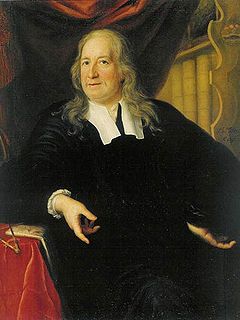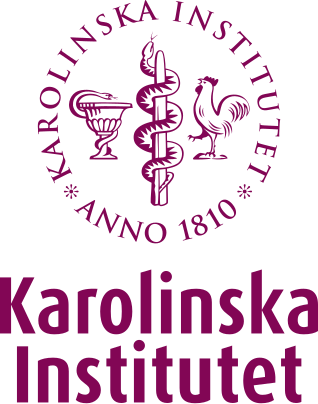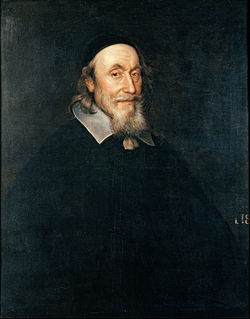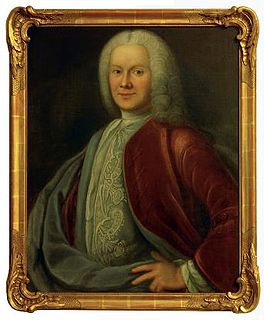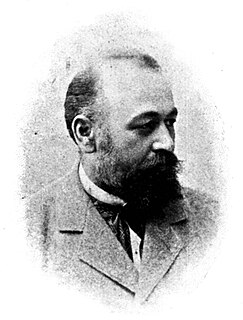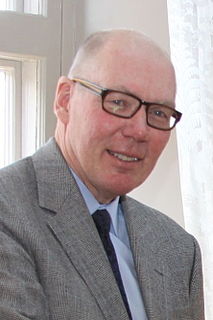| Johan Gustaf Acrel | |
|---|---|
 | |
| Born | May 15, 1741 Stockholm |
| Died | February 18, 1801 (aged 59) |
Johan Gustaf Acrel (May 15, 1741 – February 18, 1801) was a Swedish physician and Professor of Medicine at Uppsala University. He was also briefly Rector Magnificus at the same university. [1]

A physician, medical practitioner, medical doctor, or simply doctor, is a professional who practises medicine, which is concerned with promoting, maintaining, or restoring health through the study, diagnosis, prognosis and treatment of disease, injury, and other physical and mental impairments. Physicians may focus their practice on certain disease categories, types of patients, and methods of treatment—known as specialities—or they may assume responsibility for the provision of continuing and comprehensive medical care to individuals, families, and communities—known as general practice. Medical practice properly requires both a detailed knowledge of the academic disciplines, such as anatomy and physiology, underlying diseases and their treatment—the science of medicine—and also a decent competence in its applied practice—the art or craft of medicine.

Professor is an academic rank at universities and other post-secondary education and research institutions in most countries. Literally, professor derives from Latin as a "person who professes" being usually an expert in arts or sciences, a teacher of the highest rank.

Medicine is the science and practice of establishing the diagnosis, prognosis, treatment, and prevention of disease. Medicine encompasses a variety of health care practices evolved to maintain and restore health by the prevention and treatment of illness. Contemporary medicine applies biomedical sciences, biomedical research, genetics, and medical technology to diagnose, treat, and prevent injury and disease, typically through pharmaceuticals or surgery, but also through therapies as diverse as psychotherapy, external splints and traction, medical devices, biologics, and ionizing radiation, amongst others.
Acrel was born in Stockholm, Sweden. After medical studies at the Serafimerlasarettet hospital in Stockholm he went to Uppsala to study medicine. He became a Master of the Society of Surgeons (Kirurgiska societeten) in Stockholm 1763. He was then appointed Feldsher in Malmö. In 1765 he became Doctor of Medicine in Uppsala. Back in Uppsala his reputation grew as one of Europe's finest physicians. He undertook several trips to Germany and France. In 1788 he was appointed Professor of Practical Medicine at Uppsala University, and in 1779 he was made a Member of the Royal Swedish Academy of Sciences. He was also Rector Magnificus of Uppsala University during the spring of 1796. [1]
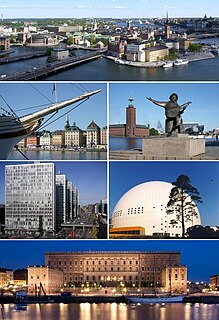
Stockholm is the capital of Sweden and the most populous urban area in the Nordic countries; 962,154 people live in the municipality, approximately 1.5 million in the urban area, and 2.3 million in the metropolitan area. The city stretches across fourteen islands where Lake Mälaren flows into the Baltic Sea. Just outside the city and along the coast is the island chain of the Stockholm archipelago. The area has been settled since the Stone Age, in the 6th millennium BC, and was founded as a city in 1252 by Swedish statesman Birger Jarl. It is also the capital of Stockholm County.

Sweden, officially the Kingdom of Sweden, is a Scandinavian Nordic country in Northern Europe. It borders Norway to the west and north and Finland to the east, and is connected to Denmark in the southwest by a bridge-tunnel across the Öresund, a strait at the Swedish-Danish border. At 450,295 square kilometres (173,860 sq mi), Sweden is the largest country in Northern Europe, the third-largest country in the European Union and the fifth largest country in Europe by area. Sweden has a total population of 10.2 million of which 2.5 million has a foreign background. It has a low population density of 22 inhabitants per square kilometre (57/sq mi). The highest concentration is in the southern half of the country.
Serafimerlasarettet, popularly known as Serafen, was the first modern hospital in Sweden. It was located in Kungsholmen in Stockholm and active from 1752 to 1980. The current building still houses the local emergency department of Serafen.

